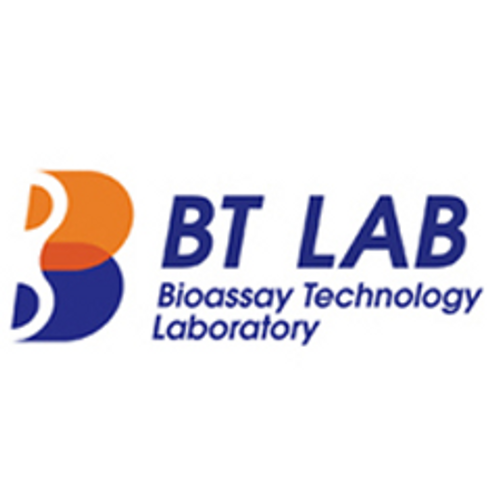Product Description
Pig Platelet Factor 4 (PF-4) ELISA Kit | AE27935PI | Abebio
Species Reactivity: Pig (Sus scrofa; Porcine)
Abbreviation: PF-4
Alternative Name: CXCL4; MGC138298; SCYB4; chemokine (C-X-C motif) ligand 4|platelet factor 4 (chemokine (C-X-C motif) ligand 4)
Application: ELISA
Range: 0.312-20 ng/mL
Sensitivity: 0.151ng/m
Intra-Assay: ≤3.4%
Inter-Assay: ≤10.6%
Recovery: 0, 9
Sample Type: Serum, Plasma, Other biological fluids
Detection Method: Sandwich
Analysis Method : Quantitive
Test Principale: This assay employs a two-site sandwich ELISA to quantitate PF-4 in samples. An antibody specific for PF-4 has been pre-coated onto a microplate. Standards and samples are pipetted into the wells and anyPF-4 present is bound by the immobilized antibody. After removing any unbound substances, a biotin-conjugated antibody specific for PF-4 is added to the wells. After washing, Streptavidin conjugated Horseradish Peroxidase (HRP) is added to the wells. Following a wash to remove any unbound avidin-enzyme reagent, a substrate solution is added to the wells and color develops in proportion to the amount of PF-4 bound in the initial step. The color development is stopped and the intensity of the color is measured.
Product Overview: Platelet factor 4 (PF4) is a small cytokine belonging to the CXC chemokine family. This chemokine is released from alpha-granules of activated platelets during platelet aggregation, and promotes blood coagulation by moderating the effects of heparin-like molecules. Due to these roles, it is predicted to play a role in wound repair and inflammation. It is usually found in a complex with proteoglycan.PF4 is chemotactic for neutrophils, fibroblasts and monocytes, and interacts with a splice variant of the chemokine receptor CXCR3, known as CXCR3B. PF4 is the antigen in heparin-induced thrombocytopenia, an idiosyncratic autoimmune reaction to the administration of the anticoagulant heparin. PF4 autoantibodies have also been found in patients with thrombosis and features resembling HIT but no prior administration of heparin.
Stability: The stability of ELISA kit is determined by the loss rate of activity. The loss rate of this kit is less than 5% within the expiration date under appropriate storage condition. The loss rate was determined by accelerated thermal degradation test. Keep the kit at 37°C for 4 and 7 days, and compare O.D.values of the kit kept at 37°C with that of at recommended temperature. (referring from China Biological Products Standard, which was calculated by the Arrhenius equation. For ELISA kit, 4 days storage at 37°C can be considered as 6 months at 2 - 8°C, which means 7 days at 37°C equaling 12 months at 2 - 8°C) .
 Euro
Euro
 USD
USD
 British Pound
British Pound
 NULL
NULL








